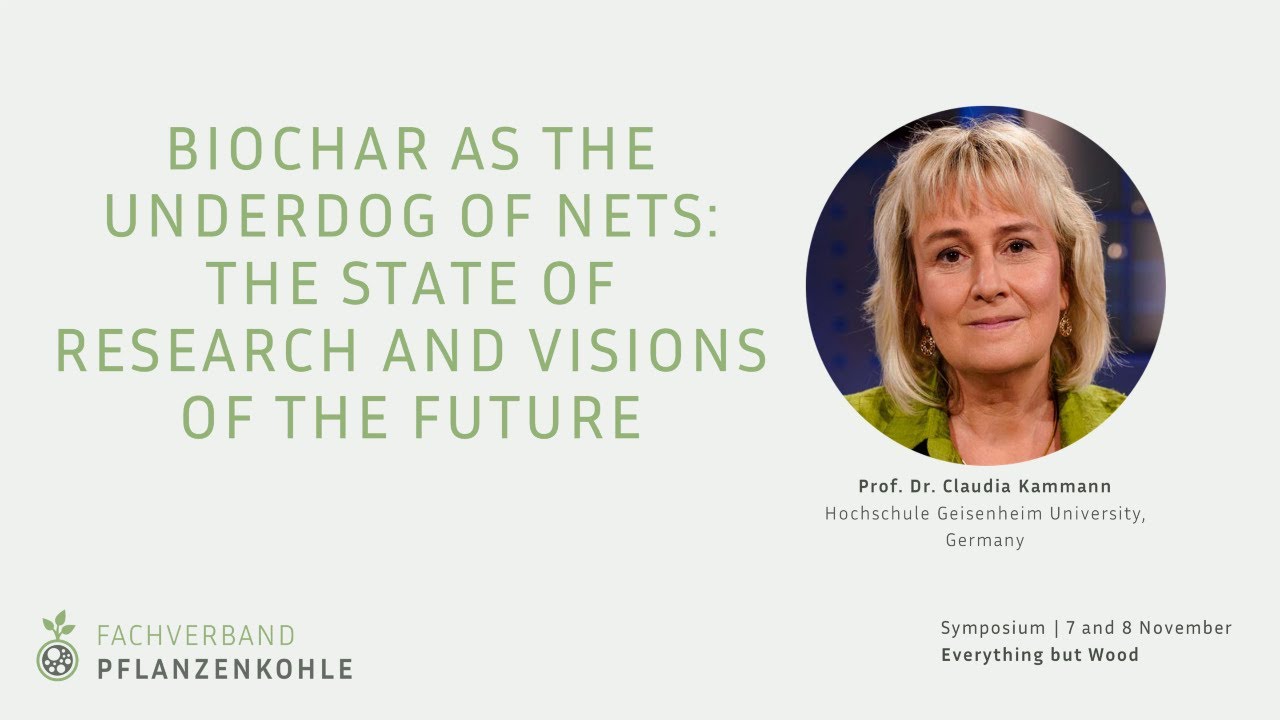By now the public at large is starting to appreciate more and more that in order to meet our two-degree climate goals we not only have to drastically reduce CO2 emissions but also need to actively remove CO2 from the atmosphere (negative emissions). What’s the perspective of the scientific community that deals with global modeling, economic models and the full range of possible negative emission technologies, though? How well is biochar represented in the IPCC reports? Prof. Claudia Kammanns presentation aims to shine a light on the underdog status of biochar within the concert of intensively researched NETs and will focus on promising applications und possible future research and development fields for the production of novel biochar products like composite fertilizer carbonisates or city tree substrates. All of this in the light of changing landscape design and land utilization. There is a lot to explore beyond wood, especially in these fields. Dr. Kammann, born 1967, studied biology in 1988-1995 at the Universities of Bayreuth and Kiel, Germany, followed by biogeochemical PhD studies at Justus Liebig University of Giessen, Germany, where she graduated in 2001. Her initial research focus was on the effects of rising atmospheric CO2 concentrations on greenhouse gas emissions of N2O and CH4 using a FACE platform (FACE = free air CO2 enrichment). Postdoc research in Gießen, Ireland and New Zealand along those, now confirmed, positive feedback mechanisms that accelerate global warming spurred C. Kammann’s interest in biochar as an (agricultural) CDR technique. In 2014, C. Kammann enrolled at Geisenheim University as a professor for climate change impact research for special crops. She authored or co-authored 88 peer-reviewed publications (H-Index 47). Her research activities range from biochar-based C-sink fertilizer development to implementation of Agri-Photovoltaics for special crop cultivation. Her passion lies in developing innovative adaptation-mitigation NE strategies for sustainable and climate-resilient agroecosystems and urban areas that deliver win-win benefits for real-world implementation.
Klaudia Kammann: Biochar as the underdog of NETs: the state of research and visions of the future
